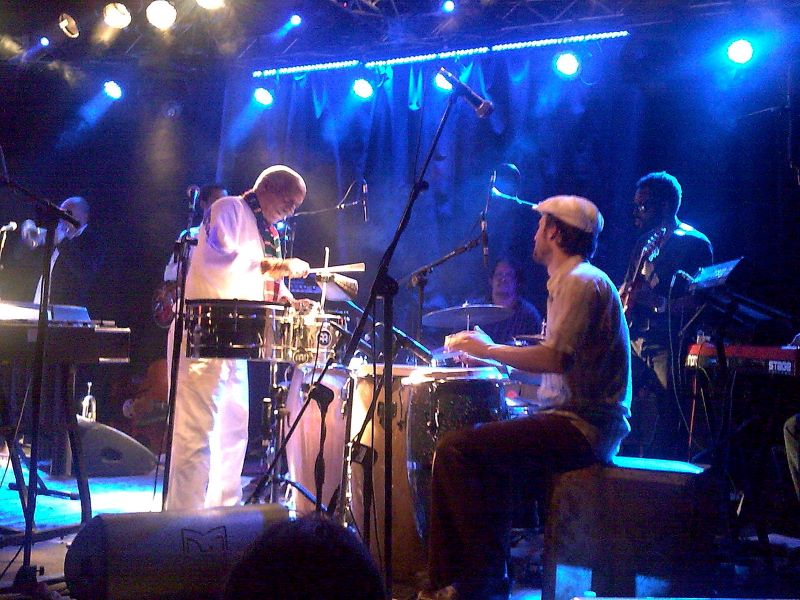Image: Haitian Voudou banners, Thom Quine, via wikimedia commons
On Haiti’s Independence Day, we explore the country’s African history and traditional African practices that were used in tandem with physical revolt during the Haitian Revolution.
The island formerly known as Hispaniola and Saint-Domingue, was originally inhabited by the Taino and Ciboney people. When the Spanish arrived on the island in 1492, they enslaved the natives. Most of the natives died due to ill treatment and European diseases. Colonists began bringing enslaved Africans to the island to work the fields.
Haiti, part of the Caribbean, was notorious for having the most brutal slave systems, with a high violence and death rate. As the most profitable island of the French during colonization, Haiti produced 60% of the coffee and 40% of the sugar being imported by Europe. In 1789, the island was made up of 550,000 enslaved Africans, 24,000 free mulattos and 32,000 European colonists.
In 1791, as a result of various uprisings by enslaved populations, with inspiration from the French Revolution, Africans led a successful revolt in the country. Led by Toussaint L’overture, Dutty Boukman and others, Haitians used physical and spiritual forces to battle with the French for their freedom.
Haitian Vodou is said to have played a huge part in the success of the revolution, as well as the Black majority population on the island. Many Africans brought to Haiti hailed from Central and West Africa, and fused different traditional African beliefs with Catholic beliefs to create Haitian Vodou. The historic Bwa Kayiman is a ceremony that is said to have been the starting point of the Haitian Revolution in 1791.
Today, Haiti symbolizes the strength of the African diaspora, and as the world’s first nation that was founded by enslaved Africans, the country’s merged African heritage and practices show the power of cultural retention and inter ethnic immersion.
Citations
https://www.foreignaffairs.com/articles/haiti/1941-07-01/hispaniola
http://slaveryandremembrance.org/articles/article/?id=A0111
https://www.britannica.com/topic/Vodou
https://www.britannica.com/topic/Haitian-Revolution





